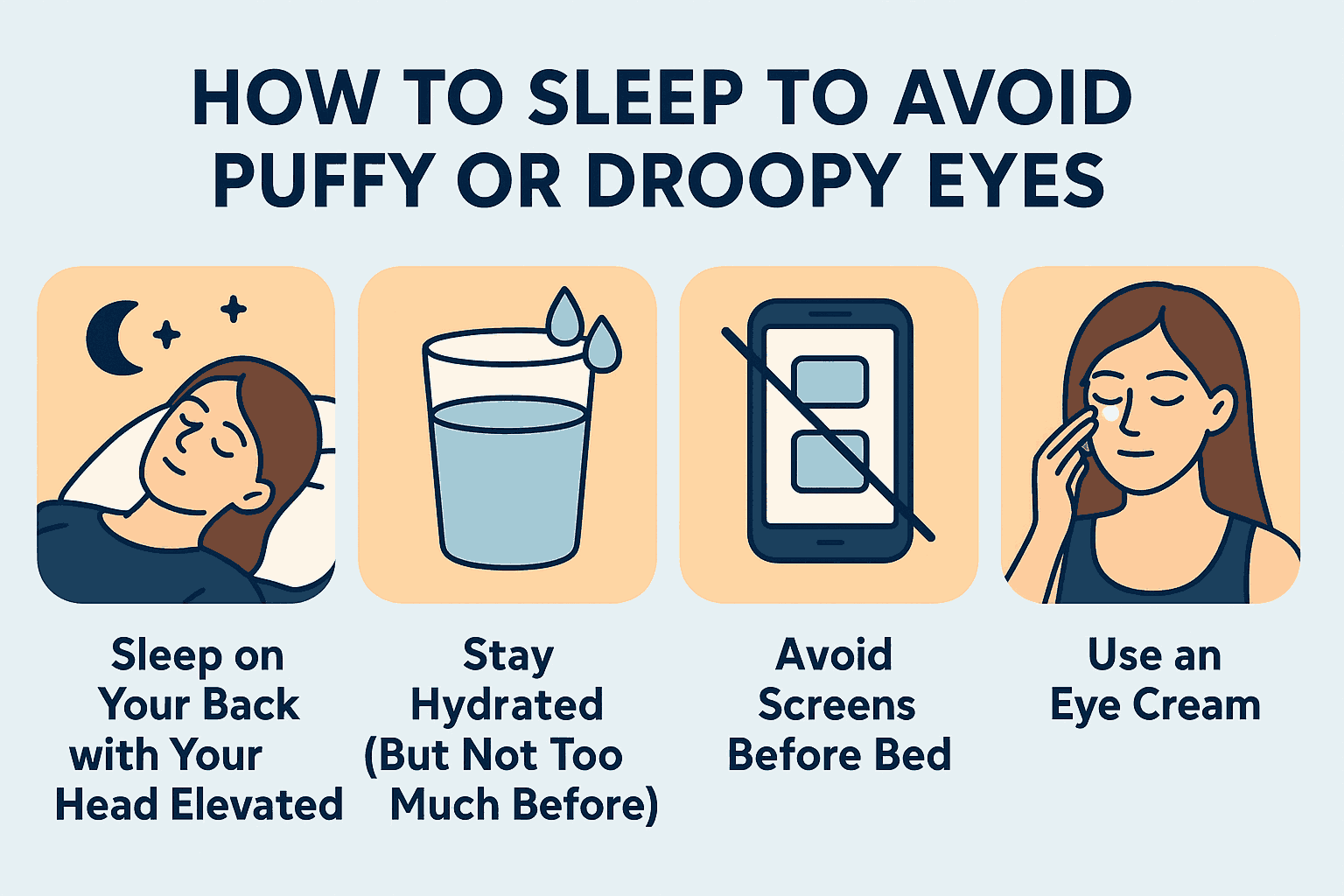How to Sleep to Avoid Puffy or Droopy Eyes? 5 Overnight Fixes That Work

You look tired when you wake up with puffy or droopy eyes, even if you have had enough sleep. There are several factors that influence your eye shape and appearance. How you sleep, and your sleeping habits, such as how long you sleep, the way you sleep, and the environment in which you sleep, also play a vital role in eye appearance. Here is the guide about how to sleep to avoid puffy or droopy eyes.
1- Take Proper Rest
Irregular sleep patterns and inadequate rest can contribute to swollen eyes and droopy eyelids. The skin around the eyes is sensitive and thin, which can be affected by a lack of sleep, leading to fluid retention, dark circles, and puffiness.
How much sleep do you need daily?
- Adults should get 7 to 9 hours of sleep per night.
- At the same time, daily, you should go to sleep early and wake up early in the morning.
By doing so, your body restores tissues during sleep, including the skin around your eyes, thereby performing effective maintenance.
2- Avoid Sleeping on Your Stomach
Sleeping on your stomach or side can cause fluid to collect around your eyes, making them look swollen. Pressing your face into the pillow can stretch the skin around your eyes, causing it to sag over time.
What to do?
- Sleep on your back to avoid collecting fluid under your eyes.
- Ensure a 10 to 15 degree angle to prevent draining fluid away.
- Use an extra pillow.
These small adjustments can reduce the pressure swelling, making your eyes look fresh and less puffy.
3- Take Less Salt Before Bedtime:
Avoid eating salty food late in the morning or before bedtime. It can cause your body to retain water. The fluid is collected around your eyes when you sleep, making your eyes look puffy or droopy.
What to do to avoid puffy eyes?
- Always take a light and low-sodium dinner.
- Avoid eating salty snacks, such as chips, noodles, and processed meats, at dinner.
- Drink enough water during the day.
A less salty dinner and balanced hydration can help your body to regulate fluid naturally, reducing swelling under the eyes.
4- Choose The Right Pillow
Pillow plays an important role in how you sleep. A high pillow can strain your head; on the other hand, a soft or flat pillow may not provide enough elevation.
Tips:
- Always use a silk pillowcase. It helps reduce friction on your skin, preventing lines and puffiness.
- Prevent sidesleeping pillow.
- Use a medium-firm pillow to prevent stretching your neck.
5- Sleep in a Dark and Cold Room
Your sleeping environment significantly impacts the quality of your sleep. Poor sleep can make your eyes look tired and droopy.
What to do?
- Maintain the room’s temperature between 60–67°F (15–19°C).
- Use a sleep mask to block out light.
- Use blackout curtains.
- Limit noise using a white noise machine.
A dark, cool room helps a deep sleep, reducing eye bags and skin recovery.
Summary
Droopy and puffy eyes are not because of age or genetics. It may be due to several reasons, such as poor sleep habits, sleeping on your stomach, or consuming caffeine before bed. You can look refreshed and protect your eye area by taking proper rest, changing your lifestyle, avoiding salty food, and choosing the right pillow.
